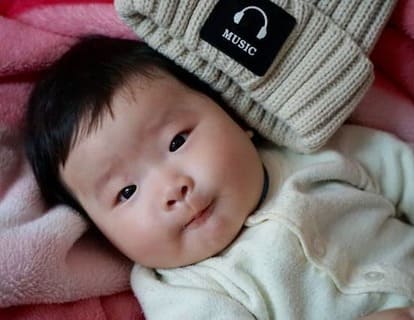Baby's Intelligence: Importance of Infant Stimulation
The early years of a child’s life represent a critical window of opportunity for development. Research has shown that the first six years of life are fundamental in shaping a child’s future cognitive abilities, emotional well-being, and social skills. During this period, the brain undergoes remarkable growth and development, making it the perfect time for targeted stimulation and enrichment activities.
In the first few years of life, more than one million neural connections are formed each second – a pace never repeated again.

Understanding Infant Stimulation
Infant stimulation refers to a series of activities and interactions designed to engage and develop a baby’s senses and cognitive abilities. Unlike formal education, infant stimulation is a therapeutic approach that focuses on natural development through play and interaction. It’s crucial to understand that this is not about pushing children to achieve milestones ahead of schedule, but rather about providing appropriate opportunities for natural development.
The Science Behind Early Development
The human brain is most plastic (able to form new connections) during the first three years of life. During this period:
- The brain forms 700-1,000 new neural connections every second
- Synaptic density reaches its peak at age 3
- The foundation for future learning is established
- Critical pathways for language, motor skills, and emotional regulation are formed
Sensory Development and Stimulation
Visual Stimulation (0-3 months)
- Newborns can see 8-12 inches from their face
- They prefer high-contrast patterns (black and white)
- Gradually introduce primary colors
- Use slow-moving objects to track
- Benefits: Visual tracking, focus, and attention span
Auditory Development
- Babies can hear in the womb from 20 weeks
- They prefer:
- Human voices, especially their mother’s
- Soft, melodic sounds
- High-pitched tones
- Activities:
- Singing lullabies
- Reading aloud
- Playing gentle music
- Talking to your baby
- Benefits: Language development, auditory processing, emotional bonding
Tactile Stimulation
- Skin-to-skin contact is crucial
- Different textures provide valuable input
- Activities:
- Gentle massage
- Different fabric textures
- Water play
- Safe household items exploration
- Benefits: Sensory integration, body awareness, emotional security
Olfactory and Gustatory Development
- Introduce various safe scents
- Allow exploration of different tastes (when age-appropriate)
- Benefits: Sensory awareness, food acceptance, memory development
Key Developmental Areas
Cognitive Development
- Problem-solving skills
- Memory formation
- Attention span
- Cause-and-effect understanding
- Activities:
- Peek-a-boo
- Object permanence games
- Simple puzzles
- Stacking toys
Physical Development
- Gross motor skills
- Fine motor skills
- Balance and coordination
- Activities:
- Tummy time
- Reaching for objects
- Crawling games
- Walking practice
Social-Emotional Development
- Attachment formation
- Emotional regulation
- Social interaction
- Activities:
- Face-to-face interaction
- Mirror play
- Social games
- Responsive caregiving
Creating an Enriched Environment
Home Environment
- Safe exploration spaces
- Age-appropriate toys
- Visual stimulation
- Quiet areas for rest
- Opportunities for movement
Daily Routines
- Consistent schedules
- Regular interaction times
- Balanced activities
- Adequate rest periods
- Nutrition and feeding times
Interesting Facts About Infant Development
- The brain reaches 80% of its adult size by age 3
- Babies can recognize their mother’s voice from birth
- Newborns can distinguish between different languages
- Infants have a natural preference for human faces
- The first three years are critical for language development
- Early experiences shape the architecture of the brain
- Positive interactions create strong neural pathways
- Stress can impact brain development
- Play is the primary way infants learn
- Responsive caregiving builds secure attachment
Infants have a definite preference for the human face, voice, touch and smell over everything else. Therefore, the infant’s best toy is you, as you speak, move, touch and talk with them.
Practical Tips for Parents
-
Be Present and Attentive
- Make eye contact
- Respond to cues
- Engage in conversation
- Show genuine interest
-
Create Learning Opportunities
- Use daily routines as teaching moments
- Turn chores into games
- Make learning fun
- Follow your child’s interests
-
Provide Appropriate Stimulation
- Match activities to developmental stage
- Avoid overstimulation
- Allow for rest periods
- Observe and respond to cues
-
Build Strong Relationships
- Show affection
- Be consistent
- Create secure attachments
- Model positive behavior
Conclusion
The early years of a child’s life represent a unique opportunity to shape their future development. Through appropriate stimulation and responsive caregiving, parents can help their children reach their full potential. Remember that every child develops at their own pace, and the goal is to provide a supportive environment that encourages natural growth and development.
Sachin Tendulkar, one of the greatest batsmen of all time, and UNICEF have released this video to celebrate fatherhood and highlight the importance of love and on why early moments matter…






